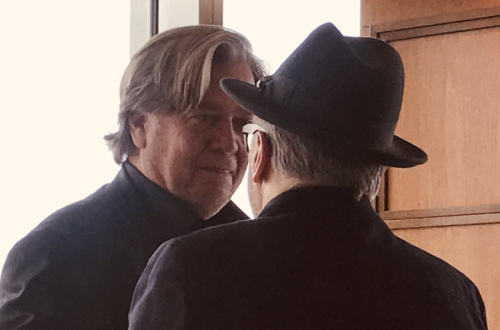What do the following people have in common: Nigel Farage, George Galloway, Rush Limbaugh, Socialist Unity’s John Wight, Pat Buchanan, Seumas Milne, Marine Le Pen and The Nation’s Stephen Cohen?
They all have considered Russian President Vladimir Putin worthy of some degree of admiration; if not for his actions, at least for his alleged toughness and political acumen in outsmarting his supposedly weak-willed rivals in the West.
Another thing they have in common is that they are starting to appear rather dumb.
Reports are emerging that a combination of collapsing oil prices and Western sanctions are driving the Russian economy toward disaster.
Matt O’Brien writes at The Washington Post:
It’s only a small simplification… to say that Russia doesn’t so much have an economy as it has an oil exporting business that subsidizes everything else. That’s why the combination of more supply from the United States, and less demand from Europe, China, and Japan has hit them particularly hard. Cheaper oil means Russian companies have fewer dollars to turn into rubles, which is just another way of saying that there’s less demand for rubles—so its price is falling. It hasn’t helped, of course, that sanctions over Russia’s incursion into Ukraine have already left Russia short on dollars.
…..
And this is only going to get worse. Russia, you see, is stuck in an economic catch-22. Its economy needs lower interest rates to push up growth, but its companies need higher interest rates to push up the ruble and make all the dollars they borrowed not worth so much. So, to use a technical term, they’re screwed no matter what they do. If they had kept interest rates low, then the ruble would have continued to disintegrate, inflation would have spiked, and big corporations would have defaulted—but at least growth wouldn’t have fallen quite so much.Instead, Russia has opted for the financial shock-and-awe of raising rates from 10.5 to 17 percent in one fell swoop. Rates that high will send Russia’s moribund economy into a deep recession…
Putin’s Russia, like the USSR before it, is only as strong as the price of oil. In the 1970s, we made the mistake of thinking that the USSR’s invasion of Afghanistan meant we were losing the Cold War, when the reality was that they had stumbled into their own Vietnam and could only afford to feed their people as long as oil stayed sky-high… That history is repeating itself now, just without the Marxism-Leninism. Putin could afford to invade Georgia and Ukraine when oil prices were comfortably in the triple digits, but not when they’re half that. Russia can’t afford anything then.
The Economist notes:
Vladimir Putin has successfully suppressed dissent, squeezed out opposition and clamped down on the media, but he has not been able to control global financial markets…
Mr Putin will no doubt blame all the usual suspects—Western speculators who bet against his currency, Western imperialists who imposed sanctions on his economy, Western economists who failed to forecast that the oil price (down by half over six months) would fall as far as it has and, of course, Western newspapers that told him that his policies would lead to disaster. But the crisis is the inevitable consequence of Putinism—of aggression abroad and a corrupt-and-control economy at home.
Finally Jonathan Chait offers some trenchant observations on the phenomenon of Putin envy on the American Right– a holdover from the days when many conservatives feared that the time-consuming messiness of democracy put the US at a disadvantage when faced with a ruthless totalitarian enemy like the Soviet Union.
When Russia invaded Ukraine earlier this year, the right lamented Barack Obama’s slow, contemplative diplomacy, which was no match for Vladimir Putin’s autocratic will. Rudy Giuliani practically lusted after the Russian dictator. “Putin decides what he wants to do, and he does it in half a day. Right? He decided he had to go to their parliament, he went to their parliament, he got permission in fifteen minutes,” swooned the admired foreign-policy strategist. “That’s what you call a leader.” Other conservatives echoed Giuliani’s praise for Putin’s will to power.
Today Putin’s economy is on the brink of collapse — in part, as Michael Crowley explains, as a result of American-led sanctions. This is not any special vindication of Obama’s foreign-policy acumen, but simply a reflection of the fact that Putin miscalculated badly. He gambled that oil, a commodity in which his economy is heavily reliant, would remain expensive, and he badly underestimated the effect of economic sanctions and other blowback. His confident assertiveness and ability to bend his parliament to approve a war of conquest in 15 minutes, when longer consideration may have rallied skeptics, turned out to be liabilities rather than advantages.
